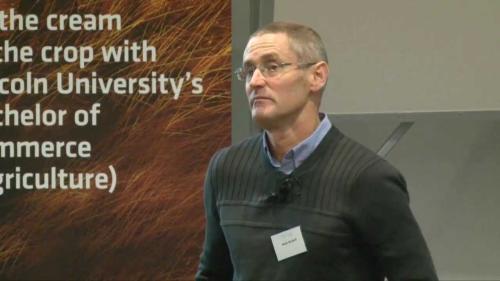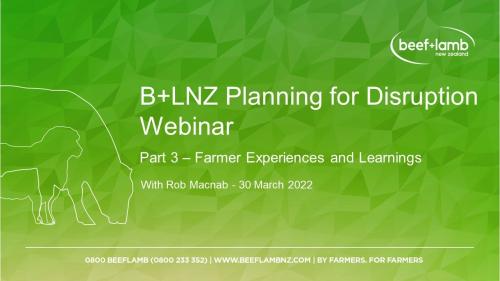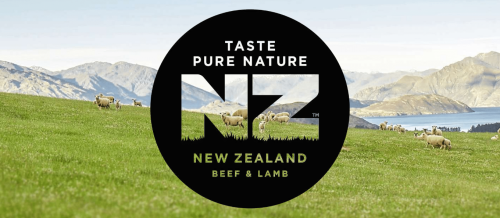Search results
Displaying 191 - 200 results of 913
- PodcastSan Jolly, a well-known farm consultant from Australia, talks about feed quality. Recorded at the 4 November 2015 Red Meat Profit Partnership Farm Management Conference Call. Comments about the cost …
- VideoBeef + Lamb New Zealand 2013 farmer science roadshow presentation by Mark McNeill of the biocontrol & biosecurity group, AgResearch Lincoln, on clover root weevil impacts and management in New …
- VideoIn the final part of B+LNZ’s Planning for Disruption webinar, B+LNZ's Mark Harris and Rob Macnab from TotalAg talk to other farmers and rural professionals around the country who have been involved …
- News… facing rising costs and uncertain global markets. Why does this matter to New … of running their businesses. Volatile global markets mean we have to work harder to earn …

- Pastoral Genomics is a New Zealand research consortium for forage improvement through biotechnology. …
- News… than ever before,” says Wan. The ongoing marketing activities include paid advertising … such as Whole Foods, Ralphs, and Jon's Fresh Marketplace. These billboards have … to the previous campaign period. Digital marketing continues to play a vital role in …
- Resource book… consumers underpin country origin branding markets climate change mitigation resourcing … license country origin brand underpinned market access development integrated …
- Resource book… currently confident farm business can soak market volatility have concerns about costs … part natural way things dont know how cope market volatility concerned about costs … status quo have need make change coping markets cost regulation being prepared farm …
- … regulations carbon emissions pricing market development maintaining core production … northern south island rather give money marketer than advocate lnz need process … drop better room than table maintain market access central south island dont just …
- Factsheet… advertisement alone also effective way help market sell your job opportunity when putting …


